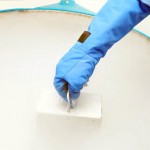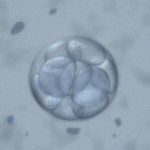Posts Tagged ‘Embryo’
Disclosure Issues In Embryo Donation: A Five Part Series
Introduction
Embryo donors and recipients are faced with a number of complex decisions. Embryo donors first have to make the difficult decision about the fate of their cryopreserved embryos. If they are kind and generous enough to choose embryo donation, at EDI they must next decide what type of donation process they prefer:
- Anonymous Embryo Donation: Best for the donors who desire closure following donation.
- Approved Embryo Donation: Good for donors who want to learn about the recipients through a mental health professional’s report that excludes any identifying information.
- Open Embryo Donation: This option is best for the embryo donor who wants to form a relationship with the recipients. This process includes legal contracts, mental health professional interviews, physical exams and laboratory evaluations.
Embryo recipients must also choose the type of donation process they prefer. They must pay additional fees as the complexity of  the donation process increases. Though the recipients may not realize this at the time, choosing between anonymous and open procedures begins to form the decisions about disclosing the children’s origins to the offspring themselves. The decision whether or not to tell the embryo donor offspring of their genetic origins is a complicated and important issue.
the donation process increases. Though the recipients may not realize this at the time, choosing between anonymous and open procedures begins to form the decisions about disclosing the children’s origins to the offspring themselves. The decision whether or not to tell the embryo donor offspring of their genetic origins is a complicated and important issue.
The goal of this five-part series is to explore the complex issues surrounding the decision to disclose the genetic origins of embryo donor offspring to family, friends and the children themselves. This multifaceted decision requires our trying to understand the perspectives of the various participants in the embryo donation process, namely the embryo donors, the embryo recipients and the offspring themselves.
For example, if you were an embryo donor, would you want to have a relationship with a child who was being raised by another family? If so, at what age would you want them to contact you? If you were an embryo recipient, would you tell friends, existing children, extended family and the children themselves that their genetic origins were from embryo donors? If so, at what age would you tell the children? Would you want them to have a relationship with the embryo donors? And finally, if you were the product of embryo donation, would you want to know who your genetic parents are? When would you want to be told? Would you seek a relationship with the donors and their children, your genetic brothers and sisters?
This is a sensitive topic and, quite plainly, it needs to be discussed carefully, sensitively and openly.
How We Will Start
To make this discussion as interesting and as current as possible, I am asking the reader to complete three brief surveys. The first survey will ask questions pertinent to the perspectives of embryo donors, the second will focus on embryo recipients and the final one will probe how children borne through this unique reproductive option might feel. Each survey will be available for completion for about 10 days.
You will find the survey on this link on Survey Monkey. It only takes a few minutes to complete. We consider your input invaluable to help us understand this complex topic.
Blog: Introduction To Disclosure Issues (This one)
Survey: “Imagine You Are An Embryo Donor”
Blog: Results of “Imagine You Are An Embryo Donor” survey and discussion about “Disclosure Issues From the Perspective of the Embryo Donor”
Survey: “Imagine You Are an Embryo Recipient”
Blog: Results of “Imagine You Are an Embryo Recipient” survey and discussion about “Disclosure Issues From the Perspective of the Embryo recipient”
Survey: “Imagine You Are an Embryo Donor Offspring”
Blog: Results from the “Imagine You Are an Embryo Donor Offspring” survey and discussion about “Disclosure Issues From the Perspective of the Embryo Donor Offspring”
Blog: “Summary Comments On The Embryo Donation Disclosure Issues”
Please ask your family, friends and other interested parties to complete the survey and add their comments to the blogs. If you wish to be notified of future blogs, either please subscribe to our blog RSS or like the EDI Facebook page.
Thank you!
Please visit and complete our survey here:
Next Month:
Please be sure to watch for our next blog that will be titled, “Embryo Donation Disclosure Issues From the Perspective of the Embryo Donor”.
P.S. We’ll also be participating in the upcoming RESOLVE teleseminar on the topic of embryo donation. Please join us on September 15th at 9:00 p.m. EST.
Are Open Embryo Donation Procedures Better Than Anonymous?
 Gamete donation of sperm, eggs or embryos has been occurring for quite some time. Sperm donation probably occurred as far back as 1884 in the US (Wikipedia, 2011). Embryo donation was first reported in Australia in 1983 using both fresh and frozen embryos. (Trounson A, Mohr L, 1983). Egg donation probably first took place in the U.S. in 1984 around the same time as the first embryo donation procedure (Blakeslee S, 1984).
Gamete donation of sperm, eggs or embryos has been occurring for quite some time. Sperm donation probably occurred as far back as 1884 in the US (Wikipedia, 2011). Embryo donation was first reported in Australia in 1983 using both fresh and frozen embryos. (Trounson A, Mohr L, 1983). Egg donation probably first took place in the U.S. in 1984 around the same time as the first embryo donation procedure (Blakeslee S, 1984).
Certainly in the early years of sperm/egg/embryo donation, the procedures were almost always done anonymously. Designated donations also took place using family and friends but they were the exception rather than the rule. Having donors and recipients meet was not really an option in the past.
Is non-anonymous sperm/egg/embryo donation becoming more common?
Over the years, there has been movement towards non-anonymous or known donations. Countries such as Sweden, Norway, Netherlands, Great Britain, Switzerland, Australia and New Zealand only allow non-anonymous sperm donations. In a future blog, we will cover some of the consequences that occur when countries completely move from anonymous to non-anonymous donation procedures. At least in the U.S., there is a choice, though Washington State recently passed legislation that makes it more difficult for anonymous sperm and egg donation to take place. I will discuss this legislation and topic in a future blog since this is an important and concerning development. An increasing number of donor sperm and donor egg banks offer non-anonymous donation, although, with rare exceptions, this remains a minority of the procedures performed in the U.S. (personal communication).
Does EDI offer non-anonymous embryo donation?
At Embryo Donation International, we offer Open Embryo Donation where the donors and recipients have the ability to communicate, meet and establish a relationship. Other facilities tend to call it “embryo adoption”, a term we are at odds with (click here for more information), where there is an attempt to foster relationships. Interestingly, at EDI, this is rarely requested although we feel it appropriate to offer such an alternative.
If embryo donors & recipients meet, what is the outcome?
If families do connect, there are a number of relationships that need to be considered. The first involves the donor(s) and the recipient(s). No one knows if these relationships will last. Romanticizing the idea of everyone being one happy family may be misguided. There are certainly examples where friendships have developed, such as the families profiled this Good Housekeeping article, but the number of relationships that don’t flourish are simply unknown. We all have to go through so many acquaintances to eventually find our true friends, so it remains uncertain if these initially awkward relationships will last beyond the transfer process. Long-term studies are lacking.
The second relationship to be considered would be with the resulting donor offspring and the donor(s). In an Open Embryo Donation procedure, the child will not only know the genetic and family history in detail but they will most likely know the names of the donor(s). The likelihood of this child trying to eventually connect with the donors is great. While there is a genetic bond, it remains uncertain if the relationship will always be welcome or beneficial. Certainly in the adoption world, adoptees that eventually find their family are not always rewarded with utter acceptance and may experience rejection, as they see it, a second time. Once again, long-term studies are lacking about the effects of an open embryo donation process with regards to the potential relationships between the donors and the donor offspring.
Lastly, there are the potential relationships between the siblings created when the donor has children of their own or donates to other recipients with offspring created. These children share a solid genetic bond and may feel rewarded in forming a relationship with their genetic brothers and sisters. Only careful, long-term and unbiased research will be able to identify the outcomes of such relationships. My best estimate is that these relationships may be sustainable but what will happen if the donor offspring are not fully accepted by the donors or the donors and recipients are no longer close?
Will my doctor be able to help me with my decision to have an open embryo donation?
So, would you want to meet your donor? Would you want to meet your recipient? It would be ideal if your clinician could clearly guide you as to the expected outcome of an open process. In reality, we are also diving into the thorny question regarding disclosure of one’s origins to embryo donor offspring, something that I will be touching upon in the months to come. For now, however, I suggest a point of caution. The world of embryo donation is simply not the same as the world of adoption and extrapolating one to the other is not without risk.
The issues we are discussing involve currently unknown long-term consequences and we need to be careful, thoughtful and unbiased in recommending one embryo donation procedure over another. For now, I believe it is a very personal decision that only embryo donors and recipients can make based on how they currently feel and what they believe will happen in the future.
I hope that we physicians deeply involved in the world of embryo donation will better be able to discuss the long-term advantages and disadvantages of open vs. anonymous procedures, but for now, the patients will simply have to guide us.
References:
“Sperm Donation.” Wikipedia, The Free Encyclopedia. Wikimedia Foundation, Inc., 23 July 2011. Web. 24 July 2011. http://en.wikipedia.org/wiki/Sperm_donation.
Trounson A, Mohr L. Human pregnancy following cryopreservation, thawing and transfer of an eight-cell embryo. Nature 1983;305:707-9.
Blakeslee, Sandra (1984-02-04). “Infertile Woman Has Baby Through Embryo Transfer”. The New York Times. Retrieved 2009-11-05.
If the Embryos Were Created From Egg or Sperm Donors, is Consent Always Required Prior to Donating the Embryos to Others?
 By Dr. Craig R. Sweet
By Dr. Craig R. Sweet
Medical & Practice Director
Founder, Embryo Donation International
Frozen embryos created from the donation of either eggs, sperm or both hold great promise for the future of embryo donation. Over the past decade, the number of babies born through gamete donation, especially egg donation, has grown tremendously. Parents who already received the precious gift of donation from an egg or sperm donor may be more emotionally prepared to “pay it forward” with their remaining frozen embryos. These parents precisely understand how challenging third-party reproduction can be and realize their dreams of parenthood would not have been fulfilled if someone had not been generous enough to donate eggs or sperm. In fact, it would appear that embryos created from donor eggs and/or sperm are some of the most likely to be donated.
There are some, however, who feel there are lingering legal questions regarding consent if embryo donation was not specified in the donor’s original agreement. We obtained legal counsel, contemplated this issue from an ethical perspective and believe there are a few important points:
- The eggs/sperm are being donated to an individual or couple who have legal rights to them.
- The egg/sperm recipient has the option to use the donated material or discard it.
- Unless the egg/sperm donor contract has specific limits or stipulations, the decisions regarding disposition of resulting embryos should be up to the recipient.
Once a sperm/egg donor relinquishes his or her right to the genetic material, it is generally acknowledged that the recipient makes all the other  decisions about the resulting embryos, including how many will be transferred during each cycle and what sort of prenatal care she will have. If fetal abnormalities are discovered during a subsequent ultrasound or amniocentesis, the recipient may make the extraordinarily difficult decision to end the pregnancy. Does she have to contact the original egg or sperm donor to be given permission to make this decision? If she is able to make this ultimate decision regarding her pregnancy, shouldn’t she be able to also make the decision to donate any of the remaining healthy embryos to a patient in need? If the ultimate decision is allowed, why not a lesser decision?
decisions about the resulting embryos, including how many will be transferred during each cycle and what sort of prenatal care she will have. If fetal abnormalities are discovered during a subsequent ultrasound or amniocentesis, the recipient may make the extraordinarily difficult decision to end the pregnancy. Does she have to contact the original egg or sperm donor to be given permission to make this decision? If she is able to make this ultimate decision regarding her pregnancy, shouldn’t she be able to also make the decision to donate any of the remaining healthy embryos to a patient in need? If the ultimate decision is allowed, why not a lesser decision?
When we are asked to receive embryos created from donor material, we do our best (i.e., due diligence) to obtain a copy of the consent the egg or sperm donor signed. If there are any stipulations present, we feel we must completely honor them. Please keep in mind, however, that obtaining the original egg/sperm donor contract is very difficult. Practices that have this information infrequently provide it to us because of privacy concerns understanding that the donors themselves are not currently our patients. If, however, the contract fails to describe any stipulations or is ultimately unavailable, we feel the decision of what to do with the embryos should be made by those who have legal rights to them, the recipient. The greater good is seemingly served by donating these embryos rather than discarding or abandoning them.
Many of these issues could be circumvented if appropriate language were used in egg/sperm donor consents. We have done just that in my practice and our consents are available on-line for review. We let the donor know that the recipient may use the resulting embryos for personal use, donate to science, donate to single women, single men or lesbian/homosexual/heterosexual couples as decided by the recipient. We feel this covers all concerns and the sperm/egg donor is perfectly able to stipulate differently or discontinue the process with this information in mind.
The concern regarding the review of the egg or sperm donor’s consent is a guideline and not law. We accept embryos created from donated materials all the time with or without consents and always honor the stipulations of the donor when they can be found. Nearly just as important, we honor the stipulations of those that donate the embryos themselves.
There are many misconceptions about the embryo donation process. Our goal is to educate and stimulate discussion regarding the world of embryo donation. We welcome and encourage your comments.
Human Embryonic Stem Cell Research – Reimbursement Debate
Should Patients be Reimbursed for Donating Their Embryos for Human Embryonic Stem Cell Research?
By Dr. Craig R. Sweet
Medical & Practice Director
Founder, Embryo Donation International
Introduction:
There are a handful of academic and private research facilities in the U.S. performing human embryonic stem cell (hESC) research. The use of embryos for research is an emotionally charged issue, with prolife and prochoice proponents having opposite viewpoints. The advantages and disadvantages of the research are not the focus of this discussion. EDI feels this is a very personal choice, which only should be made with great care and thought.
Let us assume for now, and at the risk of offending some, that there is potential merit to hESC research.
Most Donors Change Their Minds
Approximately 71% of the patients who state they will donate their unused embryos routinely change their minds, with most discarding them instead (Klock SC, et al. 2001). In fact, only about 5-10% of the patients actually donated their unused embryos for hESC research (Elford K, et al. 2004 & Klock SC, et al. 2001). Why do so many change their minds?
Would the percentage of embryos donated for research increase if donors were given a minimum level of financial reimbursement?
Inappropriate Enticement?
Centers performing hESC research are under very strict guidelines. Institutional review boards for human experimentation, which oversee such studies, forbid any level of coercion in obtaining embryos. Coercion can mean many things, including offering excessive financial incentives. But in my opinion, restricting even small tokens of appreciation can be counterproductive. For example, when we worked with Harvard’s hESC lab, we wanted to offer patients a $25 gift card to encourage them to complete the paperwork within 30 days so we could transport the embryos to the study facility as quickly as possible. Soon after starting this, we were told to stop because even a $25 gift card might be interpreted as inappropriate enticement.
Does anyone really think the $25 would inappropriately convince a patient to
donate their embryos for hESC research when they would otherwise not have done so?
In a pilot study performed by our parent organization, Specialists In Reproductive Medicine & Surgery (SRMS), we found the average cost per embryo transferred or cryopreserved was $2,400. This study included patients with and without insurance coverage. These estimates didn’t include the costs of time away from work, pain, suffering or any other infertility treatment expenses leading up to the IVF procedure. Interestingly, the cost per embryo transferred or cryopreserved ranged from $650 to $23,000.
What if the reimbursement was always far less than the amount that was spent to create the embryos, to make certain no one ever created embryos for profit?
Will Researchers Benefit?
Is there any doubt that academic centers and private companies may benefit from hESC research? If there is a scientific breakthrough at a hESC research facility, isn’t it reasonable that they will benefit from research dollars and/or actual profits? Even the American Medical Association’s (AMA) Council on Ethical and Judicial affairs states: “Profits from the commercial use of human tissue and its products may be shared with patients, in accordance with lawful contractual agreements.” (AMA, Opinion 2.08)
Is it wrong to ask why the patients who provided the embryos shouldn’t be reimbursed for even a fraction of what it took to create them?
What Do Patients Think?
In Netwon’s 2003 paper examining attitudes towards embryo donation procedures, 16% of those interviewed rejected embryo donation without some reimbursement with another 32% uncertain. (Newton CR, et al. 2003). This is compelling evidence that some patients felt the embryos had worth and that a level of reimbursement was not only desired, but required.
What Did You Think?
We conducted a poll on Facebook asking: “Should patients be compensated for donating their embryos for human embryonic stem cell research? Why or why not?” The following were the results:
- No: 11 people (69%)
- Uncertain: 2 (12%)
- Yes: 3 (19%)
While not a very large poll, the overriding opinion was no. I certainly respect their view. Clearly, reimbursement is not appropriate for all. I can’t help but wonder, however, if it would be appropriate for some.
I suggest that reimbursement for research studies is commonplace but seems to be forbidden in hESC research. What makes it so different? Facilities conducting this research are under a magnifying glass and most likely are afraid of criticism regarding human embryos. Are they afraid of a public relations backlash? Perhaps they truly feel it is ethically inappropriate, even though participants in other forms of clinical research; sperm, egg, and blood plasma donation; and surrogacy and adoption are reimbursed or compensatedfor reasonable and customary expenses and time and effort. But any suggestions about reimbursing for human embryos seem to be taboo.
Will Reimbursement Reduce the Number of Embryos Discarded?
So will adding a small financial incentive change human behavior and reduce the number of embryos discarded? Would a study exploring this clear institutional review board perusal for human experimentation oversight? Simply posing the question won’t work as people change their minds about embryo disposition. A randomized, multi-center longitudinal study might answer the question. In this study, some patients would be reimbursed and others not, with the number of embryos donated to patients in need or research would be compared to the number that were ultimately discarded.
Will anyone be brave enough to initiate such a study?
In Summary
What if a small amount of money was provided for embryos destined for hESC research? If reimbursement was provided, the research facility would need to require documentation of the money spent to create the embryos. It would be absolutely necessary that the facility always pay far less than it ever took to create the embryos. We must make certain that no one would ever create the embryos for profit, something I feel is overwhelmingly inappropriate.
Those who do not feel comfortable with reimbursement could simply refuse or request a donation be made to charity. Since we currently are forbidden to reimburse patients for embryos donated to patients in need at EDI, we instead donate to charity in either the donor’s name or anonymously. It is the best compromise we could find.
Perhaps fewer embryos would be discarded, abandoned or perpetually cryopreserved if we motivated patients with direct reimbursement or donation to charity. If we did so, might the greater good be served?
References:
Opinion 2.08 – Commercial use of Human Tissue. AMA Code of Medical Ethics.
http://www.ama-assn.org//ama/pub/physician-resources/medical-ethics/code-medical-ethics/opinion208.pageElford K, Lawrence C, Leader A. Research implications of embryo cryopreservation choices made by patients undergoing in vitro fertilization. Fertil Steril. 2004 Apr;81(4):1154-5.
Klock SC, et al. The disposition of unused frozen embryos [letter]. N Engl J Med 2001;345(1):69-70.
Newton CR, et al. Embryo donation- attitudes toward donation procedures and factors predicting willingness to donate. Hum Repro 2003;18(4):878-84.
Welcome to Embryo Donation International
Hello and welcome to the Embryo Donation International blog! We will be discussing all things related to embryo donation – the process, guidelines, regulations and the tough decisions that go into the final decision.
Who is Embryo Donation International (EDI)?
Embryo Donation International (EDI) is a subdivision of Specialists In Reproductive Medicine & Surgery, P.A., which has been providing embryo donation for 10 years making us one of the most experienced embryo donation facilities in the country.
Our mission is to reduce the number of cryopreserved embryos abandoned or discarded by assisting in the matching embryos to patients in need regardless of race, religion, ancestry, sexual preference or marital status. We turned this philosophy into Embryo Donation International.
I started creating our embryo donation program in 2000 and had our first delivery in 2001. I have always enjoyed the field of reproductive ethics, which helped to form many of my philosophies regarding embryo donation. In speaking out against embryo abandonment and the discarding of embryos while speaking out in favor of human embryonic stem cell research, my reproductive endocrine practice began to form the core values we now hold so dearly here at EDI.
At EDI, we believe that the embryos deserve a heightened level of respect; placing them between common cells and the patients we treat. We feel this is a type of gentle embryo advocacy. We believe that they should be used for a common good and have the opportunity to build a family.
For more information, please view the About Us section of the blog or visit our website www.EmbryoDonation.com.
What sets EDI Apart from other Embryo Donation Organizations?
EDI is non-discriminatory. We welcome healthy recipients including single women, homosexual couples, cancer survivors and people of any race or ethnicity. While we believe all healthy embryos deserve a chance at life and that healthy individual deserves a chance at parenthood, we are not a faith-based facility.
We are dedicated to making the process of embryo donation affordable. Our fees are roughly 50-60% less than many alternatives. We also accept embryos from around the world.
Additionally, we have a growing database of embryos (which is available for reviewing at no cost) and we offer them through a variety of means – approved, anonymous and open embryo donation procedures– based on the donors’ wishes and the recipients’ willingness to participate.
We look forward to offering tools for donating or receiving, or simply helping you learn more about the options available along your infertility journey, which we all hope will end with parenthood.
Craig R. Sweet, M.D.
Founder, Embryo Donation International
Reproductive Endocrinologist
Medical & Laboratory Director




